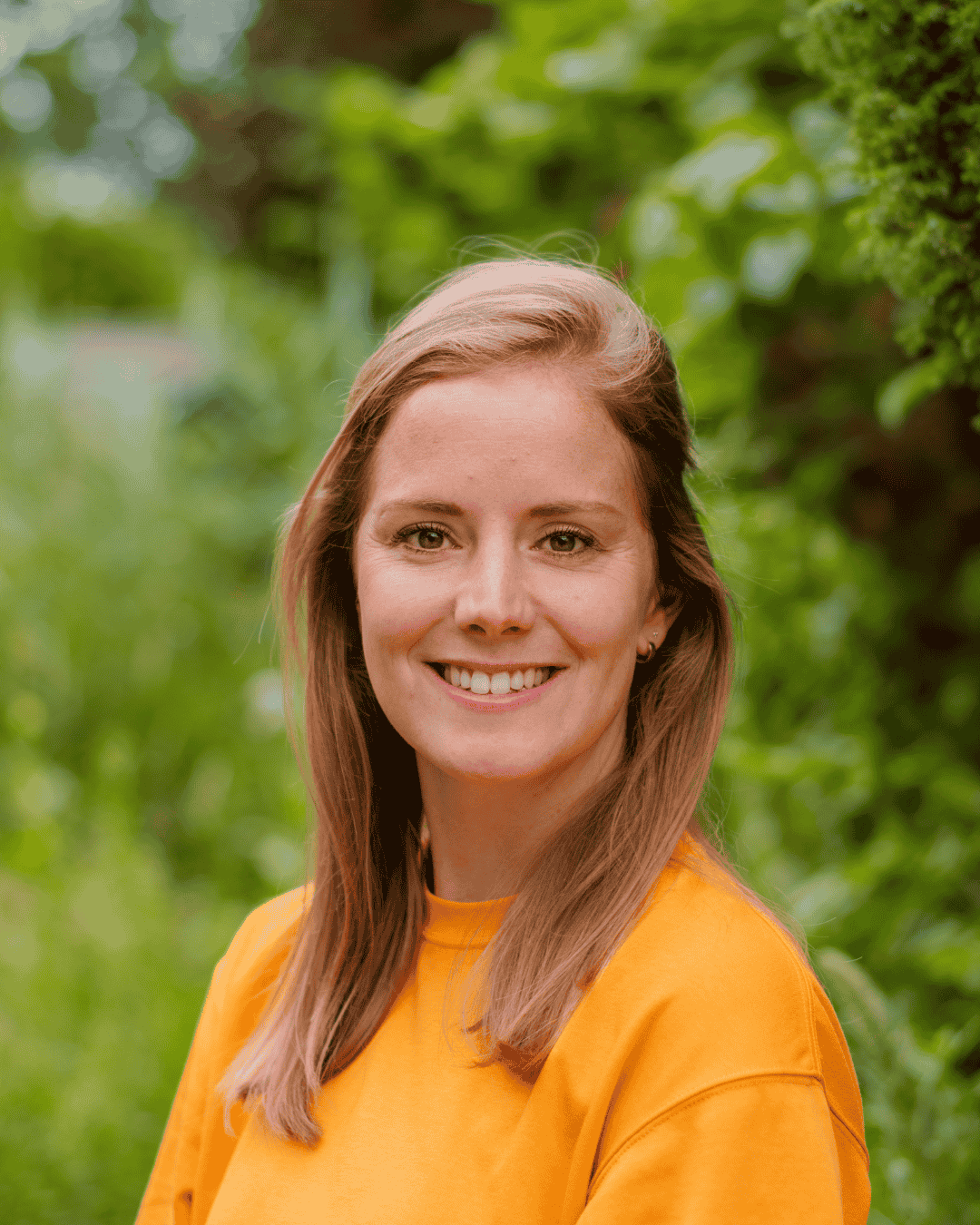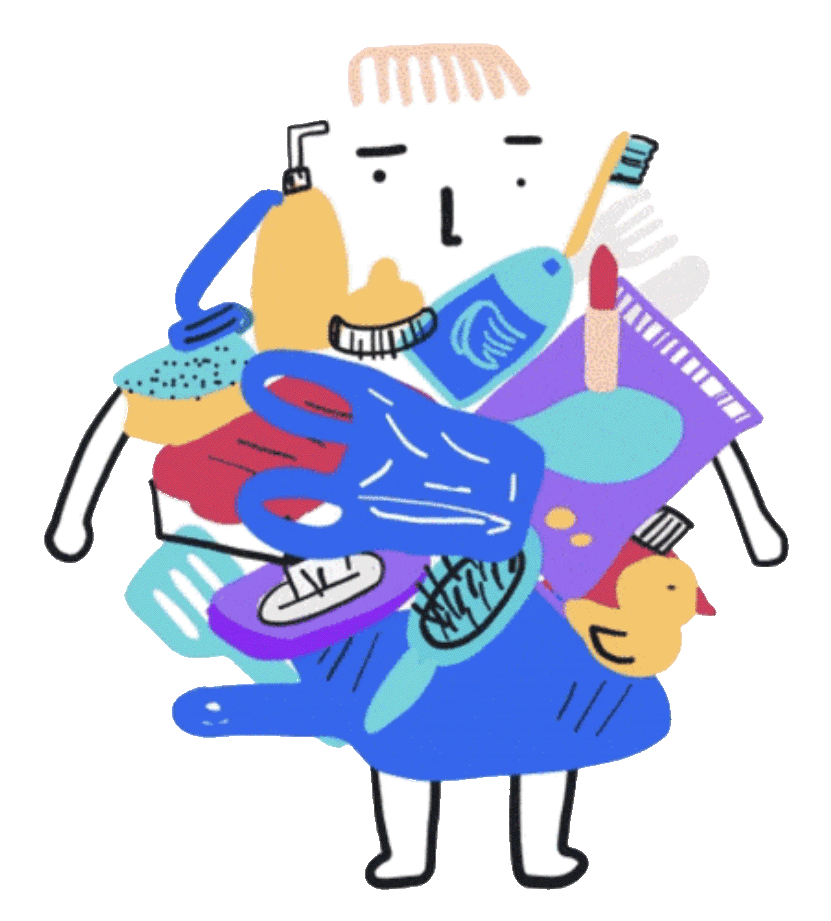Liza Trouwborst is marketingmanager at Weleda.
- Let me introduce myself: who is Liza Trouwborst?
I am 33 years old and Marketing Manager at WELEDA, where I am responsible for the marketing team and the brand for the Benelux market. For more than 7 years I have enjoyed working for a healthier and greener world, by making people more aware of what they put on their skin.
- Can you tell us briefly about the history of Weleda? And how big is your company and sales market?
WELEDAhas been around for over 100 years, since 1921. Originally started from plant pharma and that knowledge and know-how has been used in the cosmetics products that now make up most of the sales, think body oils, shower creams and deodorant, but also face and baby care. We are a BCorp (top 3 score in Beauty) with our own biodynamic gardens and fair trade cultivation projects we manage the entire production chain from A-Z.
We operate in 55 countries worldwide, with some 2,500 employees, headquartered in Switzerland. In the Benelux, our biggest customers are Etos, Holland & Barrett, Ekoplaza and various (online) wholesalers. On an annual basis, we sell over 5 million products, a reasonable scale, but obviously very small compared to the Unilevers and l'Oréals of this world. 😉 - How long has Weleda been a partner of Plastic Soup Foundation, and what does being part of the Business Communitybring you as a brand?
The partnership goes way back. 9 years ago WELEDA 'won' the Plastic Soup Terrine from PSF and since then we have become Golden Angel. We have mounted several activation campaigns together in recent years to raise awareness about microplastics in grooming. Through these (store) floor actions, the collaboration can be made very concrete towards our customers (the retailers): Buy WELEDA and support Plastic Soup Foundation, for example.
- What is Weleda doing to reduce its plastic footprint? And since when?
Since the start of the company in 1921, WELEDA has been developing only 100% natural formulas, so obviously without microplastics, which do not belong there. For decades, paper has been used to fill deliveries during transport instead of plastic. Single-use plastics such as coffee cups have never entered our premises, and we could go on like this for a while.
In terms of packaging, we use recycled green glass (infinitely recyclable) for about 60% of the packaging. About 15% is recycled aluminum and the rest is made up of various recycled plastics. We sometimes face challenges; glass is not always desirable or possible for certain products (how do you get a rich shower cream out of this?).
We also benefit from packaging with very good preservative properties, which guarantee the shelf life of the formulas. This, because we do not use synthetic preservatives in the formulas themselves. And a consumer -of course- wants the product to last longer. use than a few weeks. Well sustainable 😉. As a result, in a small proportion of cases we end up with plastic packaging. We have a team in Switzerland that works on this every day to develop packaging that is as sustainable (and functional) as possible, in cooperation with suppliers. Think: as few different types of plastic as possible in one tube, which promotes the recyclability of a product.
- Why do you think this is important to do?
Through our cooperation with PSF, among others, we know in our bubble the effect of (micro)plastics and their impact on the world, but also our health. In practice, however, a large group of people still does not know about this, so it feels a bit of a duty to share this knowledge and raise awareness.
- What do you like most about sustainable business?
It's becoming a reasonable cliché in the year 2025, but I too prefer to make impact. For impact you need scale and therefore fundings so sales is a very important component. WELEDA is obviously not my own company, but it is a great example for me to see how every euro earned is reinvested in the operations and the products, in order to further contribute to a more biodiverse and healthier world. Consider, for example, the Cradle Campus, ed. one of the most sustainable distribution centers in the world.
- What are you personally doing to reduce your plastic footprint?
First of all, reuse as much of the plastic that has already been produced as possible. Furthermore, as little plastic as possible in the kitchen (glass storage containers, wooden and steel cutting boards, stainless steel pans) and refuse as much single-use plastic as possible in the form of bags, food containers, etc.
- What viable sustainability tip do you often give to those around you?
MINDERSHOPPING. Consu-less.
I personally hate parties like Shein or Temu. They enter the global market like a rocket and create need for stuff and clothing you didn't know you needed beforehand. And also at ridiculously low prices where you can question the ethical nature of the products. Unfortunately, many people are quite sensitive to this and even though as a marketer I might find the marketing campaigns and their success enviable; NO THANKS. There are also local and more sustainable alternatives in fashion, think of the Dutch the Mercer Brand or French B Corp webshop Sézane. - How do you view the future on this topic?
It is necessary to take responsibility throughout the chain. So there is also a role for marketers to sell not only products, but also values. Furthermore, I think laws and regulations are needed to limit this kind of practice and teach consumers to use their power by choosing with their wallets.
- Where do you stand on the current focus on CO2 reduction versus the focus on plastic footprint reduction and climate change?
Good question. All important and I can't judge which is more important or urgent, but linked to climate change, decline in biodiversity is also a really big issue. In other words, the diversity of all life in the world, including in the Netherlands, is declining drastically. (Micro)plastic in nature obviously also has a big influence on this.
- What do you think is the single biggest misunderstanding around sustainability that you would like to eliminate?
That people can think that Vegan cosmetics are automatically sustainable. Even purely synthetic cosmetics, based, for example, on silicones (microplastics) or kerosene (so too Vaseline, petrolatum, etc.) can be vegan. Kerosene is mineral oil derived from petroleum, we can think all kinds of things about it, but to see it as sustainable, to me, lurks a risk 😉 There is slowly coming some more regulation in the field of cosmetics and sustainability claims, but this can't go fast enough as far as we are concerned. So to be clear, Vegan cosmetics are not, like food is, automatically plant-based. It just means that no ingredients of animal origin have been used. - What do people really need to know about plastic pollution?
That it also affects your health. For some people, the world and the environment are a distant memory and as soon as you make it concrete for people what the dangers are for themselves and their health, I hope there will be greater receptivity to the issue and action will be taken.
- Where are you going to tackle for the next 5/10 years in terms of sustainability, especially linked to the plastic footprint?
Further optimize our product portfolio, eliminate plastic packaging as much as possible. At the same time continue to challenge our suppliers to increase the proportion of recycled plastic in packaging (at least 60% from recycled material by 2030), as long as we use it for preservation of the natural formulas. In addition, see if we can also think "out of the tube" for example. You see more and more water-free formulas. Consumers are not really ready for it yet, but there is a role for manufacturers there as well - Is there anything else you'd like to share, but didn't pass by in the above?We're going live soon -for the second year- with a very cool campaign. A multibrand campaign with a number of microplastic-free personal care brands, so besides WELEDA: the Lekker Company, Marcel's Green Soap and Smyle. Last year the focus was mainly on awareness of microplastics and -in collaboration with you- we made it to RTL Boulevard with the topic of microplastics in cosmetics. This year it is a collaboration with Etos, where we are offering a ready-made microplastic-free routine in week 23 and 24. In this way, we hope to get consumers to make the switch to microplastic-free at an attractive discount.



.png)
